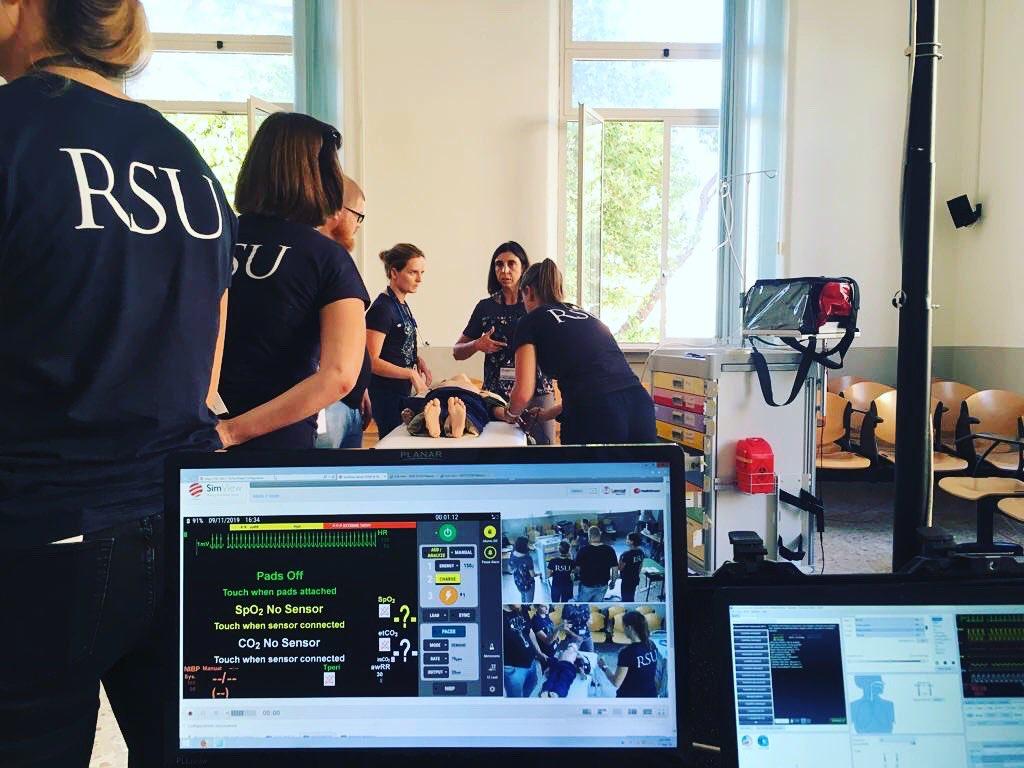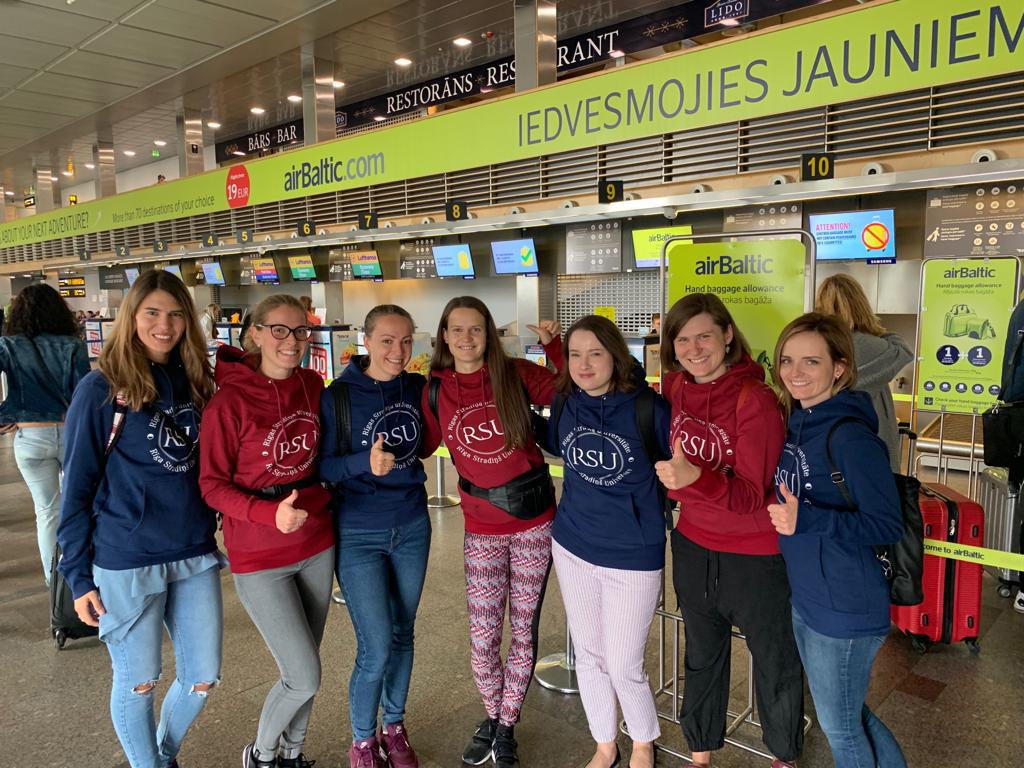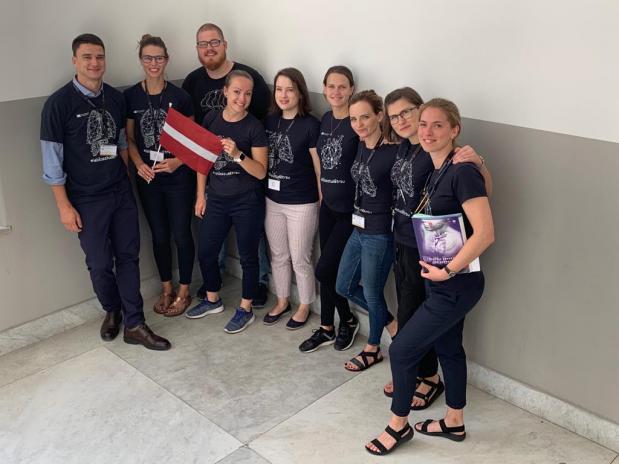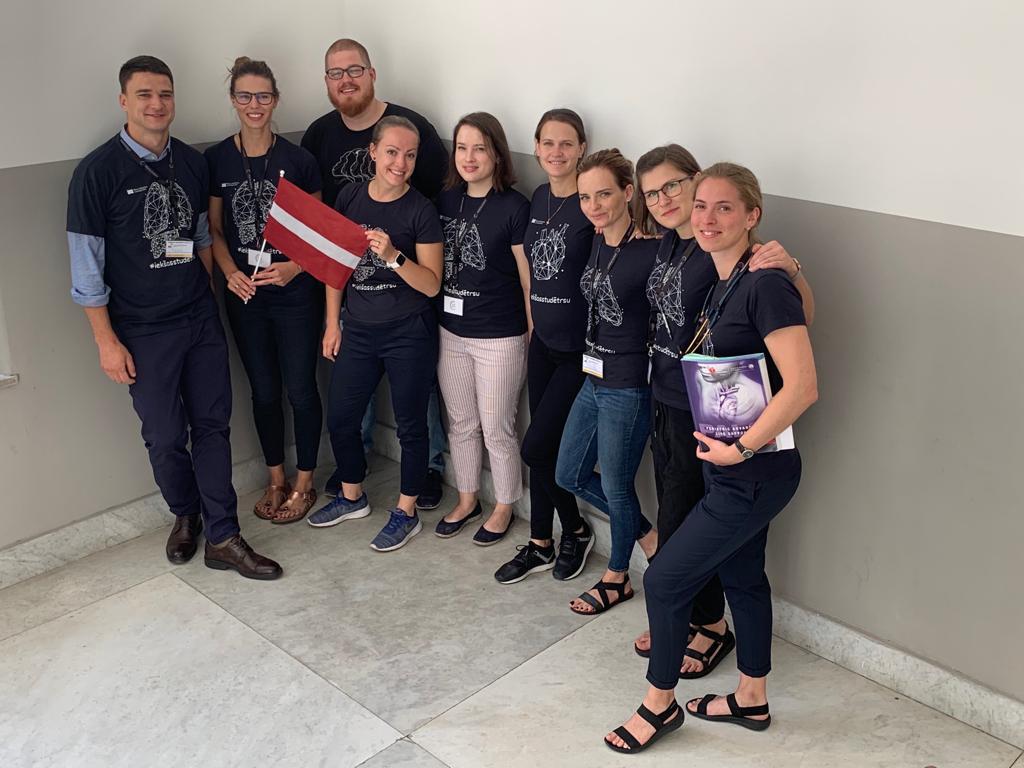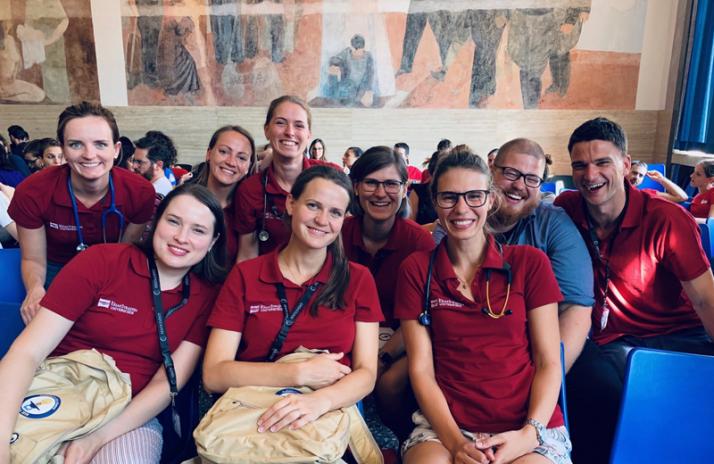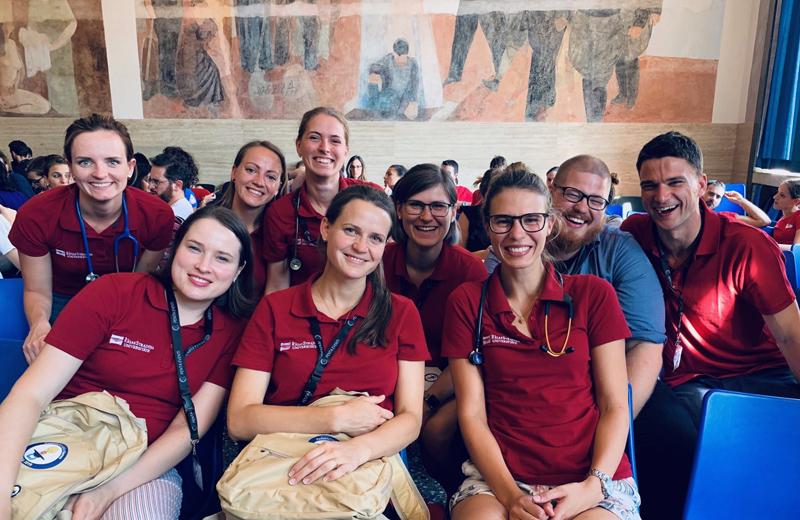RSU paediatricians place fifth in competition in Italy
Last week, 38 teams of young paediatricians from Italy, France, Spain and Latvia competed in the Third Paediatric Simulation Games in Latina, a city near Rome. A team of the residents from Rīga Stradiņš University (RSU), under the leadership of a lecturer and physician of paediatric intensive care Reinis Balmaks, placed fifth in the competition.
The RSU team comprised of eight residents: Luīze Auziņa, Baiba Ziemele, Aleksandra Rudzāte, Anna Gūtmane, Dagnija Pētersone, Roberts Gobergs, Gunta Zvīgule-Neidere and Paula Kļaviņa.
‘This international competition is like the Olympic games for medical residents. At the competition young paediatricians can demonstrate their reaction time and skills in working with acutely ill children by using simulation technologies,’ explains Reinis Balmaks. He praises the work that the young paediatricians put in, in preparation for this event. ‘A resident’s daily routine is very busy. They are on 24-hour shifts working at the hospital which they have to combine with research and paedagogic work at the university. It is amazing that despite their busy schedules, the young paediatricians participating in the competition managed to work on their knowledge and teamwork prior to going to Italy.’
Apart from the preparatory work carried out by the young physicians, they received substantial support from both the RSU and the Children’s Clinical University Hospital as they headed to the international competition. ‘Simulation technologies are an essential part of modern medicine. These technologies help reduce the extremely high costs of medical errors,’ underlines Balmaks.
The competition was organised by the Sapienza University of Rome with the aim to assess and upgrade young physicians’ skills to provide medical assistance to young patients in acute situations. Over four days the 38 teams simulated around 640 emergency situations in paediatrics on their way towards a play-off tournament between the eight remaining teams. An independent and international jury composed of leading paediatric intensive care specialists from the US and Canada evaluated the participants’ performance. The winners will get a chance to participate in the World Paediatric Simulation Games in Mexico in 2020.
The organisers say that the competition fosters the dissemination of a unified approach towards patient assessment, diagnosis and treatment among residents on an international level. It also improves and facilitates cross-border cooperation among paediatricians.
Related news
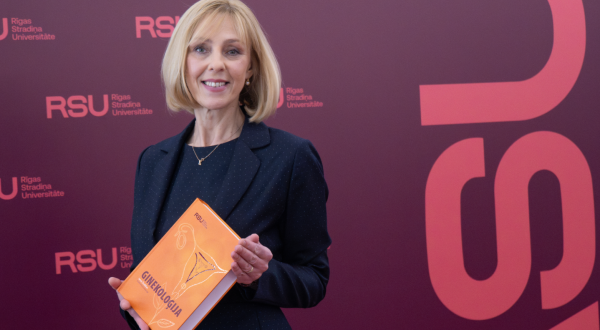 RSU publishes new gynaecology textbookObstetrics and Gynaecology, Graduate Medical Training, MF, Books
RSU publishes new gynaecology textbookObstetrics and Gynaecology, Graduate Medical Training, MF, Books
